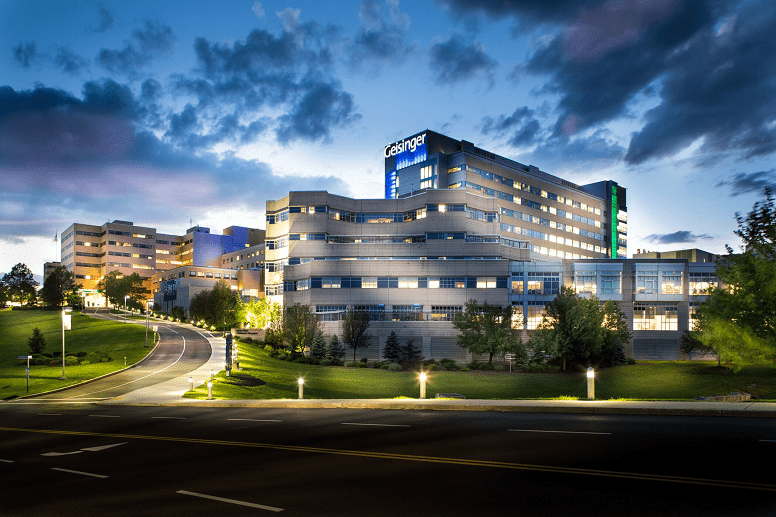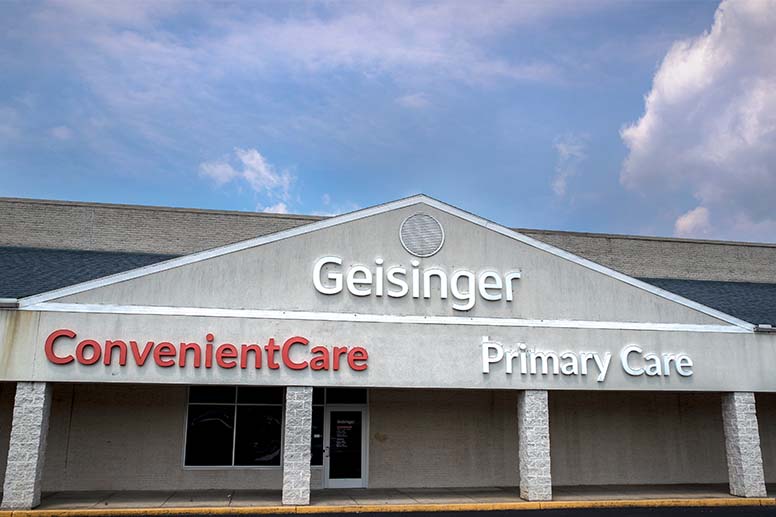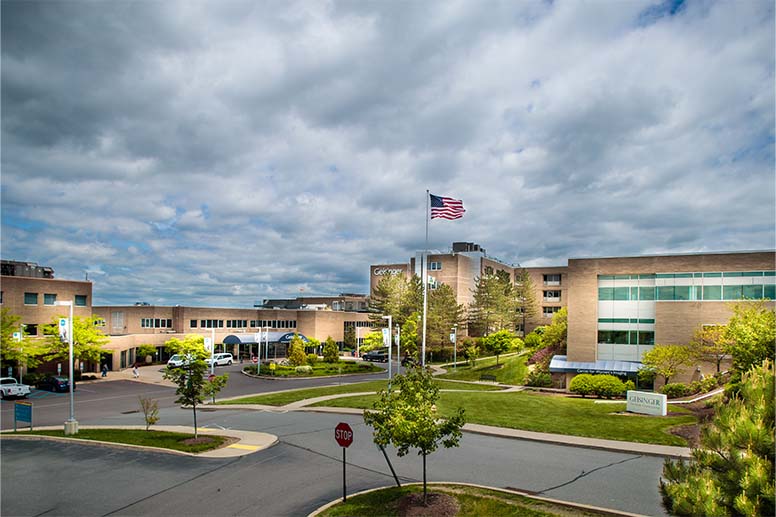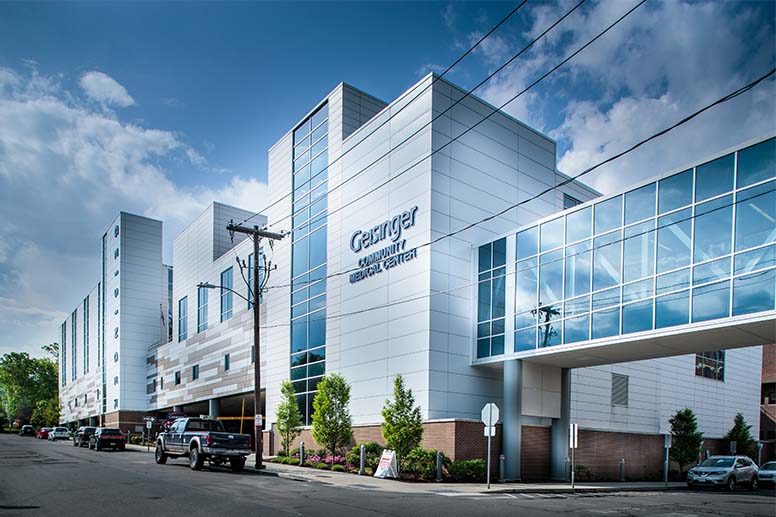Program overview
Curriculum
Geisinger’s Neurology Residency program offers a curriculum that allows you to develop an integrated approach to patient care.
Innovative experiences such as well-being initiatives, residents as teachers, quality improvement, simulation, standardized patient communication workshops and orientation boot camp will all be woven throughout your clinical training.
Elective opportunities
- Neuromuscular
- Epilepsy
- Neurophysiology
- Neuro-immunology
- Movement disorders
- Cognitive neurology
- Headache medicine
- Vascular neurology
- Neuro-ophthalmology
- Neuro-otology
- Neurocritical care
- Neuroradiology
- Teleneurology
- Neuro-genetics
- Sleep medicine
- Interventional pain medicine
- Neuro-rehabilitation
- Research
- Neuro-endovascular
- Away rotations
Foundations of Neuroscience (boot camp)
The goal of the Foundations of Neuroscience course is to help you develop a detailed knowledge of neuroscience, neuroanatomy and neuropharmacology. Extensive and detailed correlation with clinical syndromes and neuroimaging is stressed. This three-week course is attended by our PGY2 and PGY4 residents.
Away rotations
Residents are permitted to schedule away rotations at other institutions for experiences not available at Geisinger.
Child neurology and psychiatry
We offer in-house child neurology and psychiatry rotations.
Geisinger had been my top choice since the time I interviewed here for my neurology residency. There were a number of factors that played a key role, including the state-of-the-art hospital, electronic health records and the friendly and congenial environment of the program. The faculty are very friendly and always available for your questions, concerns and supervision. There is also great emphasis on resident education and well-being. The boot camp that is a didactic block during PGY2 and PGY4 is really beneficial for RITE and boards preparation. The area around Geisinger is also family-centered with some of the best school districts in Pennsylvania, along with a number of outdoor activities, including hiking, biking and kayaking.”
Didactics
Didactic curriculum
You’ll receive five hours of formal didactics each week.
- Friday, noon – 3 p.m.: Block didactics with faculty-led lecture series
- Wednesday, noon – 1 p.m.: Departmental and resident-led conferences – Grand Rounds, Journal Club, M&M, neuroradiology
- Thursday 7 – 8 a.m.: Morning Report
- Quarterly Wednesday, 7-8am: Neuro-Rheumatology Conference
Additional didactic sessions include:
- Simulations: Neurologic emergencies, delivering bad news, functional neurologic disorder, shared decision-making, disclosure of error, domestic violence, end of life goals
- Certifications: Emergency neurological life support (ENLS) and brain death certifications
- Subspecialty conferences: Epilepsy conference, neurophysiology case conference, stroke conference, Tumor Board conference, aging brain conference
- Wellness, bias recognition and mitigation, cross-cultural competency, social determinants of health
Resident presentation requirements
This program emphasizes evidence-based medicine and aims to develop your education-related skills. As a learner, you’ll get the opportunity to practice these skills with faculty mentoring.
- PGY4s present one departmental Grand Rounds.
- PGY2s, PGY3s and PGY4s present one journal club article per year.
- PGY2s are paired with PGY4s to present one M&M conference per year.
- All residents are paired with radiology residents to present a case at a neuroradiology conference two-three times per year.
- PGY-3 residents are paired with a Rheumatology fellow to present one Neuro-Rheumatology conference per year.
- Neurology residents on the general consult service will present a case of their choice in morning report. Presenter is assigned by our medical education chief.
Continuity clinic and mini electives
- We do our schedule on a weekly basis, with every week starting on Wednesdays for PGY1 residents and Tuesdays for PGY2 – 4 residents.
- Continuity clinic occurs every five weeks during PGY2 – 4 years.
- Clinics are held on Thursdays (all day), Fridays (morning only) and Mondays (all day).
- Friday continuity clinic is reserved for telemedicine visits and acute care slots. This gives residents the opportunity to acquire and practice the necessary skills for telemedicine encounters as well as an opportunity to follow hospital discharge patients and patients that need to be evaluated urgently.
- Continuity clinic slots for new patients are subspecialty slots for neuromuscular, epilepsy, cognitive, movement disorders and neuro-immunology. Tuesdays and Wednesdays of every continuity clinic week are dedicated to mini electives of your choice. This model gives you early exposure to multiple different subspecialties to expand your clinical skills and help you decide on a fellowship.
- You also have weekly subspecialty electives with no continuity clinic.
Click here to see a sample schedule.
| ^ Top |
Rotation sites
PGY1 rotation sites

Internal medicine: Inpatient (three four-week blocks)
Palliative care (one four-week block)
Critical care (one four-week block)
Cardiology (one four-week block)
Emergency medicine (one four-week block)
Neurology (four four-week blocks)

Medicine outpatient clinic (two four-week blocks)
PGY2 - 4 rotation sites

Primary site

● Cognitive
● Movement
● Neuromuscular
● Epilepsy
● General neurology

● Epilepsy
● General neurology
Well-being and social events
We love our residents and value their well-being! Our program has robust well-being initiatives and social/family support.
Well-being initiatives
- Allowed time for medical and dental appointments
- Wellness days
- Academic time
- Interview days for fellowship
- Administrative time for chief residents
- Relocation days for graduates
- Weekly schedule for continuity clinic with no service responsibilities
- Work decompression with limitation of night float to one week
- Recovery time for night float and inpatient service senior resident
- Parental, medical and/or caregiver leave
- Training sessions for efficiency using the electronic medical record
- Institutional wellness resources
Program-sponsored social events
- Annual retreat for residents, program leadership, and their families
- Welcome party for new residents
- Halloween party with best costume contest
- Holiday party with white elephant gift exchange
- Graduation ceremony to honor our graduates and present resident and faculty awards
- Monthly well-being activities organized by our well-being committee
